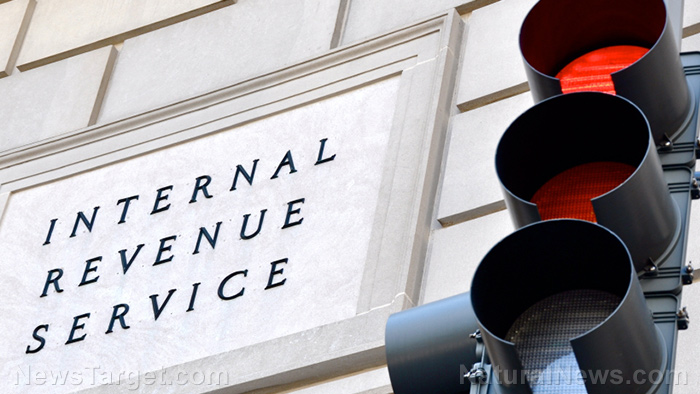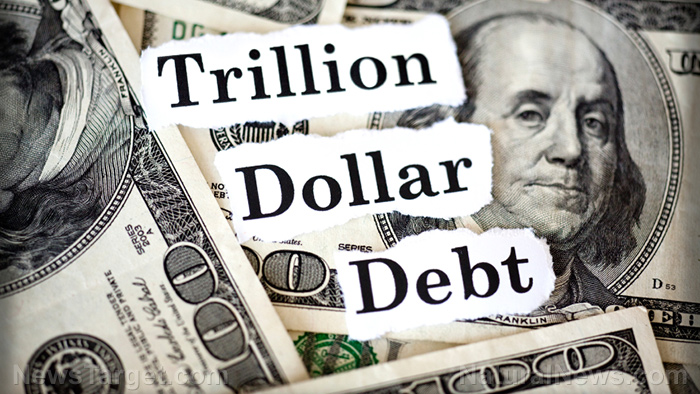Most major banks agree: 2023 spells BIG TROUBLE for the U.S. economy
01/06/2023 / By Ethan Huff

Things are about to get really ugly – as if the world was not already in really, really bad shape – for the United States economy.
The vast majority of economists at 23 of the nation’s largest financial institutions told The Wall Street Journal in a recent poll that the ongoing recession – which is only just getting started – will cause millions more Americans to lose their jobs. Inflation will also continue to rise as the corrupt financial system breaks apart at the seams – this being a long time coming.
Two-thirds of the nearly two dozen financial institutions polled – these include trading companies and investment banks that work directly with the Federal Reserve – are in agreement that the U.S. economy will “contract” in 2023.
Some are still in denial that the nation is currently in a recession, stating that they expect it to arrive in 2024. There are also a few that actually believe a downturn can be avoided altogether – even though the markets are already in a downturn based on all generally accepted metrics used prior to the Biden regime’s occupation of the White House.
Credit Suisse, Goldman Sachs, HSBC, JPMorgan Chase, and Morgan Stanley all claim that everything is just fine. The rest, however, see either recession, depression, or potentially much worse on the horizon. (Related: The number of Americans taking out loans just to buy groceries doubled this year.)
“The institutions that predict a coming recession expect consumer spending to weaken as Americans deplete their savings and an aggressive Fed drives up borrowing costs and as banks’ lending standards get tighter,” reports explain.
“Soaring U.S. inflation, which in June 2022 hit a recent peak of 9 percent in annual terms, as measured by the Consumer Price Index (CPI), has forced the Fed to raise rates at its fastest pace since the 1980s in a desperate bid to relieve price pressures.”
Despite continued rate hikes, inflation is still spiking
The effect of all these rate hikes so far has been a whole lot of nothing. November’s CPI data still showed inflation at an astounding 7.1 percent – and if you apply the government metrics that were used in the 1980s, November’s inflation rate was actually 15.23 percent.
This is a lot of inflation that, for most Americans, is rapidly pricing them out of first world status. The country is in shambles, and many major banks and financial institutions have run out of excuses as they admit: things are not good.
The Fed says it plans to continuing raising interest rates until inflation reaches the target of just 2 percent – or by roughly 4 percent, using 1980s metrics.
The expectation this year is that unemployment will exceed 5 percent, based on the Fed’s plan to bring the terminal Fed Funds rate to 5.1 percent. Rates this high will easily push unemployment to 4.6 percent from the current 3.7 percent – and these higher unemployment rates are expected to persist well into 2024.
The International Monetary Fund (IMF) in its latest biannual global economic outlook, released in October, indicated that inflation will not be as transitory as the Fed had initially claimed.
The worst was supposed to occur in 2022, we were told, but now the latest narrative is that crippling inflation will “remain elevated for longer than previously expected.”
“More than a third of the global economy will contract this year or next, while the three largest economies – the United States, the European Union, and China – will continue to stall,” that report reads.
“In short, the worst is yet to come, and for many people, 2023 will feel like a recession.”
If stories like this interest you, more can be found at Collapse.news.
Sources for this article include:
Submit a correction >>
Tagged Under:
2023, banks, Collapse, crash, currency crash, dollar demise, economic collapse, finance, finance riot, housing bomb, pensions, recession, risk, stock market
This article may contain statements that reflect the opinion of the author
RECENT NEWS & ARTICLES
COPYRIGHT © 2018 GOVERNMENTDEBT.NEWS
All content posted on this site is protected under Free Speech. GovernmentDebt.news is not responsible for content written by contributing authors. The information on this site is provided for educational and entertainment purposes only. It is not intended as a substitute for professional advice of any kind. GovernmentDebt.news assumes no responsibility for the use or misuse of this material. All trademarks, registered trademarks and service marks mentioned on this site are the property of their respective owners.




















